No matter where you decide to settle in Indonesia, living here has its pros and cons.
A featured location is the Kalimantan portion of Borneo Island (“the Borneo”), the third largest in the world, but you have endless choices of places you can call home in Indonesia.
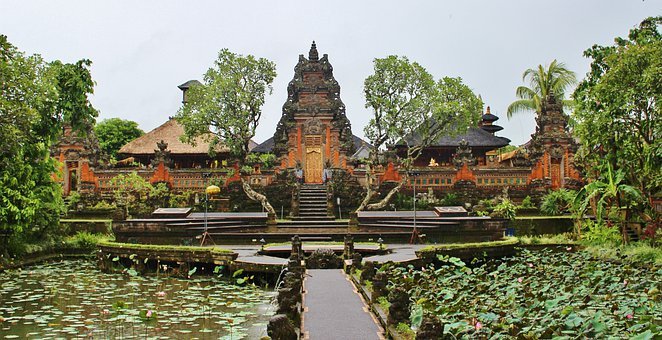
Contents
Pros of Living in Indonesia
1. Communities for Expats
Of course, you do not want to just hang out with a bunch of foreigners the entire time you are in Indonesia.
Still, it may help you feel less homesick for your country of birth if you have people to associate with in a similar predicament as you.
Expat communities especially help if you have just arrived and have yet to become established in Indonesia as a permanent resident (either part-time or full-time).
Jakarta, particularly in the Sudirman, Kuningan, and Menteng neighborhoods, is an ex-pat hotspot.
However, you do not have to stay there forever if you do not want to.
2. Free-Trade Zones
A free-trade zone is an area where you can more easily trade goods without the hassle of channeling them through customs.
As a visiting consumer, you may still have to face customs if you take those goods outside the country.
However, it does at least make it easier for you to acquire products from all over the world if you live in a zone that, for example, sells items from the other Pacific Island countries, the U.S. Australia, the EU, or wherever.
3. Hospitable People
Indonesia offers one of the most hospitable, friendly places for you to live.
Few places on earth will make you feel as welcome as here.
U.S. News and World Report rank #29 in the friendly countries category and #37 in the best countries category overall.
As long as you respond in kind, they will welcome you with open arms.
They are known to not like “stuck up” (“sombong”) people.
4. Unique Natural Landmarks
If you visit these Indonesian sites, you won’t forget them.
Even if you are not Hindu, you will want to stop and visit the Prambanan temples in Java, which were built in the 9th century.
It is a part of the Komodo National Park, which also features biodiverse coral reefs, tropical swamp trees (mangroves), and water buffalo.
It has a range of mammals, including dolphins and whales too.
Of all the sites you see in Indonesia, the Ulun Danu Beratan is probably one of the most unique.
It has three structures with layered roofs, and these three shrines sit on a dock that stretches into Beratan Lake.
Another spectacular sight is the Sipiso-Piso Waterfall in Sumatra which drops its stream to 390 feet below before it splashes into the vegetation-covered rocks below.
These are only a few of the unique landmarks Indonesia has.
You can explore all kinds of caves, volcanoes, and mountains too.
5. Clear Turquoise Beaches
Beach life: It is one of the top reasons anyone moves to a country next to an ocean.
Bali Beach has hosted honeymoons, surfers and scuba divers, and more.
Kuta Beach features surfing and active nightlife.
Lombok at Kuta & Gili Islands offers you a spectacular view of the deep blue-green sea and a chance to dive.
It is right between the Pacific and the Indian Ocean, and about 6000 of its 17,508 islands are inhabitable, so you shouldn’t run out of coastal land to see.
Perhaps check out Pink, Tanjung Aan, and Padar Island Beaches before you make your final decision on where to settle.
Borneo Island also has some beaches you may want to check out.
Kota Kinabalu features not only its rainforest and mountains but also some of the most captivating beaches in the world.
Kuching and Balikpapan are also some places to explore before you decide on a place to live.
6. Rich Cultural Diversity
Indonesia expresses its cultural diversity through dance, music, theatre, rituals, and crafts.
You can also see it in their architecture.
One famous site of cultural significance to see here includes Tanah Lot Temple, which has the appearance of a slated stone.
It sits on the water close to the shore.
This manmade landmark appears as if it belongs there by nature.
A temple sits on the highest point of it (not too high though, about the average height for a house on the water).
Many other manmade landmarks of cultural significance are temples or former temples, but you will find museums too.
In addition, one spot you may want to check out if you’re a diver is the site of the USS Liberty Shipwreck, which the Japanese sunk with a torpedo in 1942.
It is also one of the country’s most famous dive sites.
If you are a musician or just love listening to music, you probably would like to settle in Bandung.
This is also a student town.
If you happen to be near “ Borneo,” this island features The Rain Luxury Club in the port city of Pontianak.
Sing Karaoke and drink beer all night if you want (well, at least until 2 a.m.).
If you plan to relocate to a free-trade zone location, you still need to have some fun.
Batam offers the Brewsky & Co. club, which has two huge TV screens that feature “football” (soccer) matches.
Batam is not too far from Singapore, by the way.
A third option: The Colosseum Jakarta operates on 1,000 square meters (10763.9 square feet) of floor space and has a massive center chandelier.
It makes you feel like you are in a science-fiction space film that takes place in a mansion.
You will have to explore other nightlife opportunities if these examples do not suit you.
Deciding where you would feel most comfortable socializing “after hours” could determine your final move-in destination.
8. Explore New Wildlife
Borneo Island has a wildlife history that will amaze you if you are into exploring animals and plants.
Kalimantan, the Indonesian portion of Borneo, makes up about 73% of this island.
The Kalimantan jungles feature the Orangutan, one of the most intelligent apes that have similar features to humans.
The Hornbill bird, with a long, usually yellow or orange beak similar to a toucan, also lives here.
Additional animals you might spot include Wild Boars, Kancil Deer and Arowana Fish.
You can also explore and witness the fauna of Camp Keakey, Tanjung Puting, and Sebangau National Parks.
In addition, maybe you should check out the Lamandua River and Mount Palung National Parks.
Plants in Kalimantan you might see include some species of aloes, wood street, or nipa palm.
You will also notice hundreds of peat swamp trees and spiders, reptiles, dragonflies, and other plants and animals.
Cons of Living in Indonesia
1. Poor Living Conditions (For Some People)
This may not apply to you if you have enough money to establish a comfortable life for you when you arrive.
However, the conditions around you in some locations might appear destitute.
It could depress you, or you could find yourself caught up in trying to help more people than you can handle helping.
2. Too Crowded, Too Much Traffic
People live closer to one another than you might find comfortable.
In some metropolitan areas, traffic conditions “suck.”
It is probably worse than major U.S. cities, for instance, which are bad enough.
Imagine an L.A. or New York traffic jam multiplied by roads not fully developed.
That is how horrible city traffic is sometimes.
You will probably want to choose a remote area or place close to where you work if you live here.
3. Limited, Sometimes Expensive, Housing
Expat community housing could cost you more than you hoped to pay.
However, living among the locals or securing spacious property sites could cost you even more.
Living here can cost you almost as much as in California or New York.
You can, however, secure some rentals for as low as $500 a month in some locations, such as in Kuta – but expect to get what you pay for, just like in the U.S. or other places.
4. Frequent Contamination
Because of poor sanitation, stomach infections and dengue fever (a condition sometimes contracted by mosquitos) occur often.
Do not ever eat street food unless you are sure it is safe and beware of purchasing fresh juices from a roadside stand.
They are often mixed with unsafe water sources.
5. Poor Water Quality
You should not drink the tap water here unless you know how to properly treat it yourself.
Stick to bottled water for the most part.
No widely known, sufficient supplies of fresh drinking water seem to exist in this country.
By the way, India is considered an area in a “sanitation crisis” according to Water.Org.
6. Exorbitant Pollution
Apparently, Indonesia has the fifth-highest rate of lost life years because of particulate pollution.
About 80% of the population has suffered exposure to air pollution concentrations far above the World Health Organization guidelines.
Much of it comes from vehicle exhaust, but it is also industry related.
Water pollution occurs in the West Java location, for instance.
7. Expensive Product Imports
You’ll do fine if you are content with what they sell in Indonesia, and they offer many well-made pieces of merchandise here.
Regardless, imported products may still cost you more if you can’t do without what you are used to having in your birth country.
On the bright side, it is the opposite, as in the U.S., for example, where domestic products cost more than imported ones.
Still, you may not always see the same quality as you would, depending on the budget of the Indonesian producer.
Consequently, you may have to pay higher prices if you want products from your home country, whether it be the U.S., Japan, Germany, or another place where the cost of goods is high.
8. Cons of Living on Borneo Island
Living on Borneo Island has its perks, but it also could cause confusion.
It is divided up into three different governments – Malaysia, Brunei, and Indonesia.
However, most of this area is managed by Indonesia.
You will need to figure out what jurisdiction of rules you should follow in the destination you plan to inhabit if you do.
Concerning this, almost half of the Kalimantan land and 89% of the forests are owned by Indonesia, mostly for ecological conservation purposes.
This guide may help you if searching for a place to live in the Kalimantan portion of Borneo.
You will also want to do more research on where you can live in one of the Indonesian-owned five provinces on Borneo Island if that is your chosen relocation destination.
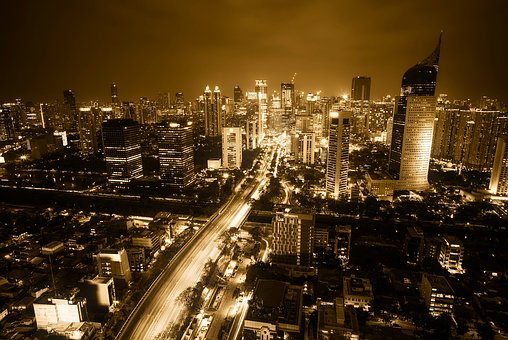
Pros and Cons of Living in Indonesia – Summary Table
| Pros of Living in Indonesia | Cons of Living in Indonesia |
|---|---|
| 1. Communities for Expats | 1. Poor Living Conditions (For Some People) |
| 2. Free-Trade Zones | 2. Too Crowded, Too Much Traffic |
| 3. Hospitable People | 3. Limited, Sometimes Expensive, Housing |
| 4. Unique Natural Landmarks | 4. Frequent Contamination |
| 5. Clear Turquoise Beaches | 5. Poor Water Quality |
| 6. Rich Cultural Diversity | 6. Exorbitant Pollution |
| 7. Vibrant Social Scene | 7. Expensive Product Imports |
| 8. Explore New Wildlife | 8. Cons of Living on Borneo Island |
Indonesia Safety Overview
READ THE FULL REPORT: Indonesia Safety Review
Safety Index:
- OVERALL RISK: MEDIUM
- TRANSPORT & TAXIS RISK: MEDIUM
- PICKPOCKETS RISK: MEDIUM
- NATURAL DISASTERS RISK: HIGH
- MUGGING RISK: MEDIUM
- TERRORISM RISK: HIGH
- SCAMS RISK: MEDIUM
- WOMEN TRAVELERS RISK: MEDIUM
Frequently Asked Questions
Do Indonesians speak English?
About 10% of them do speak English well, if not fluently.
You will probably want to learn at least some of the basic phrases for conversation purposes in their local dialect of the Indonesian language.
The most common of the 800-plus languages spoken here, by the way, is the Bahasa Indonesia dialect.
Does terrorism occur in Indonesia?
Unfortunately, Indonesia did rank as the 8th most affected by terrorism in 2019.
However, you can almost predict when or where it will happen.
For instance, it could occur on a religious holiday or when a new leader has been elected, according to the UK government.
Watch out when you are in any public place where a tourist or new ex-pat arrival would be.
For instance, you could witness or become injured at an airport, hotel, shopping mall, house of worship, or tourist attraction.
Spend as little time in these public places as possible.
How do you live in Indonesia?
To start, you might want to try for a short-stay visa.
Longer periods of residence require several steps, such as finding a job, applying for the work visa that pertains to your profession, and preparing for permanent residency as an ex-pat.
What currency does Indonesia use?
They mostly use the Rupiah(IDR/Rp).
It has less value than the U.S. dollar and is one of the lowest currency values in the world.
You will need to convert your USD to Rupiah to spend your money here.
What major religion does Indonesia follow?
Most of the people in this country follow the Muslim religion.
However, many of them also practice Catholicism, Buddhism, Hinduism, Protestantism, or Confucianism.
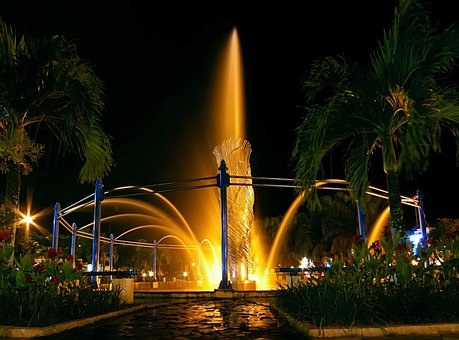


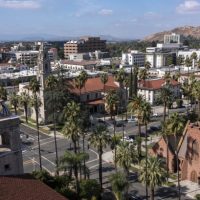
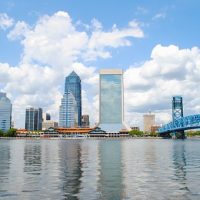







Living in Indonesia offers a diverse range of experiences and opportunities, but there are also challenges to consider such as poor living conditions and pollution.
Living in Indonesia can offer a diverse and welcoming community, unique natural landmarks, and a vibrant social scene, but it also has its challenges such as poor living conditions, crowded cities, and pollution.